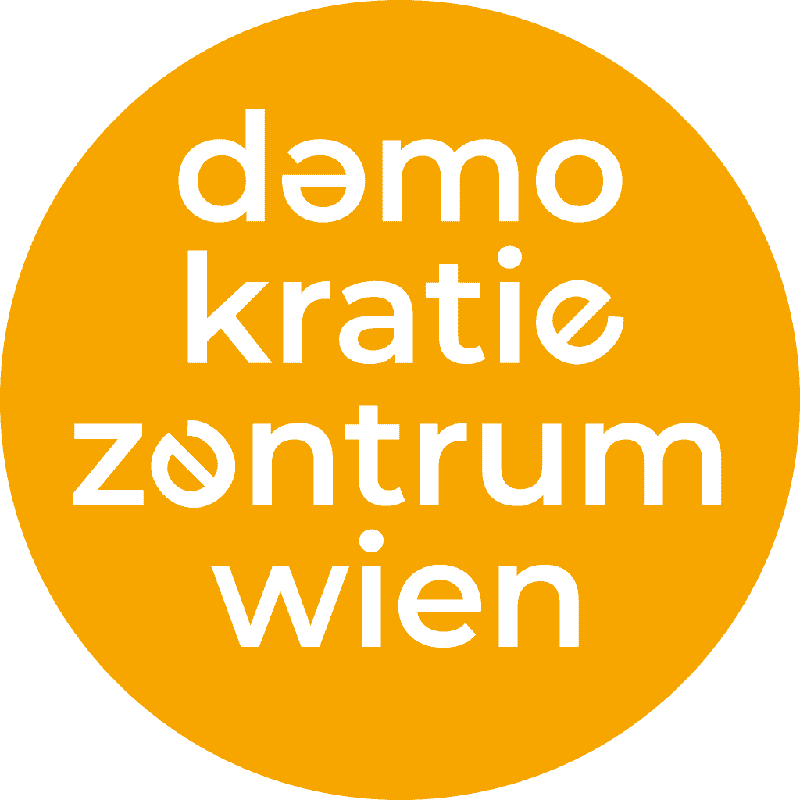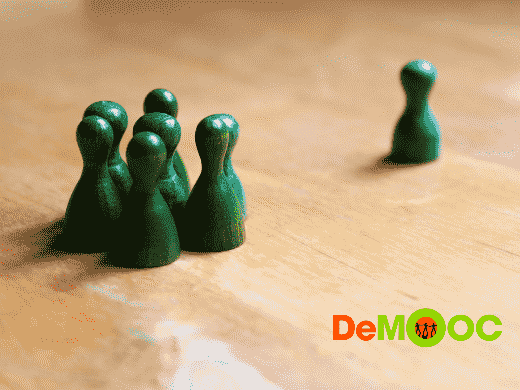


DeMOOC: Exclusions in concrete terms – What prevents democratic participation?
Democracy Centre Vienna
Univ.-Prof. Dr. Dirk Lange, Stefanie Fridrik, BA BA MA and Josef Mühlbauer, BA MA
About
General Course Information
Welcome to the in-depth course “DeMOOC: Exclusions in concrete terms – What prevents democratic participation?” of the Demokratie MOOC!
What is the Demokratie MOOC?
The MOOC series “Demokratie MOOC” - DeMOOC for short - is a free online course series for openly accessible and digital democratic political education for adults, which is being implemented in a cooperation between the Association of Austrian Adult Education Centers and the Democracy Center Vienna. The DeMOOC is offered in several modular self-study courses and runs without a time limit, so that participation is possible regardless of time and place. The courses in the DeMOOC series help participants to build up a basic knowledge of democracy, politics, political processes and social structures so that they can integrate this knowledge into their own lives. The various main topics are always related back to issues relevant to democratic politics in order to promote the strengthening of critical and responsible citizenship.
Further information on the MOOC series “Demokratie MOOC” can be found at:
Who is this course aimed at?
The MOOC “DeMOOC: Exclusions in concrete terms – What prevents democratic participation?” expands and deepens the content of the course program. The course is aimed at teachers and multipliers who would like to delve deeper into different dimensions and dynamics of social exclusion in the context of opportunities for political participation, in order to integrate it into their educational work. In addition to multimedia, specialist input for developing and reflecting on the content, the DeMOOC offers examples and materials for didactic preparation as suggestions for educational work. With the compactly compiled information texts the course is additionally directed towards learners who want to inform themselves about questions and problems in relation to societal exclusion and exclusion criteria.
Although the MOOC is thematically linked to previous courses in the DeMOOC series, it can be completed independently of them. You will find an introductory video to the DeMOOC embedded in the first unit of the basic course part 1:
Content
Course Content
The in-depth course “DeMOOC: Exclusions in concrete terms – What prevents democratic participation?” offers participants a specialized, in-depth
treatment of content from the subject area of civic education, democracy
building and anti-discrimination work. To this end, the course first provides a
theoretical basis, introducing various forms and mechanisms of intersectional,
multidimensional as well as structural exclusion. As part of this, essential
concepts are clarified in the context of their implications for democracy.
Another focus is on linking these dynamics with areas of everyday life and
practice, discussing such examples such as the design of public urban spaces or
the issue of care work. Finally, selected examples of good practice will be
used to highlight various possibilities for action to combat societal exclusion
and marginalization. In particular, examples will be presented that contribute
to a more inclusive civic practice.
Course Goals
By completing the courses in the DeMOOC series, participants should be able to develop a deeper understanding of democracy, politics and society at various political levels in order to strengthen their own access to politics and experience their own active participation in the political system. The aim of the DeMOOC is to strengthen political education in adult education, in extracurricular and school education, but also among generally interested people. The DeMOOC is therefore particularly suitable for multipliers, course planners, teachers, social workers, educators and anyone interested in the field of civic education. The programs in the “Initiative Erwachsenenbildung” as well as many other course and offer areas in adult education can also benefit from the DeMOOC.
The in-depth course “DeMOOC: Exclusions in concrete terms – What prevents democratic participation?“ aims to sensitize participants to forms of societal exclusion and marginalization mechanisms in order to recognize that exclusion is not only happening on an interpersonal, personal level, but is also structurally embedded. The course should further enable reflection on both, the political consequences within a democracy and on the effects of structural exclusions on everyday life. Looking at examples of good practice also opens up perspectives on knowledge and experiences of various practice actors from the field and thus combines the theoretical foundations with (civic) practical knowledge.
Besides a basic factual understanding of concepts and terms, participants in the MOOC will also receive impulses and documents for addressing this topic in their own educational work. To this end, didactic material for adult education will also be offered.
Previous Knowledge
No previous knowledge is necessary.
Course Procedure
This MOOC consists of four units, which are self-contained but build on each other, and focus on various topics. Each unit is in turn divided into sub-chapters and contains media content (explanatory video(s), radio clips) and informational texts as well as specific tasks and a didactic preparation of the topics. Each unit ends with a quiz and a discussion forum.
Unit 1 is the thematic basis and the most comprehensive lesson of the course. It clarifies key terms and concepts related to exclusions from democratic participation. Unit 2 and 3 build on this, offering selected in-depth topics and illustrating the theoretical concepts with some concrete examples from areas of everyday life. Within the final unit 4, the focus lies on selected examples of good practice and the opportunities of action they offer.
Unit 1: Exploring the terms “exclusion” and “marginalization”
Workload: approx. 4 hours
Unit 2: Structural & institutional dimensions of
exclusion
Workload: approx. 4 hours
Unit 3: Exclusion mechanisms in areas of everyday life
Workload: approx. 4 hours
Unit 4: Good practice examples & measures for inclusion
Workload: approx. 4 hours
The units are activated individually on a weekly basis and are then freely available as a self-study course for an unlimited period of time.
Certificate
For active participation in the course, upon
completion, an automated certificate will be issued, which will include your
username, the course name and the completed units. It should be noted that this
is only a confirmation that the user has correctly answered at least 75% of the
self-assessment questions (multiple choice quiz) asked.
Licence
Unless otherwise indicated, the content provided
in the course is made available under the following license: CC BY 4.0 Demokratiezentrum
Wien. The content may be used for educational and other non-commercial purposes
on the condition that the following name is cited as the source: Demokratiezentrum
Wien. External linked materials, videos etc. may be excluded from the Creative
Commons license. Please note the applicable regulations.
Course Instructor
Univ.-Prof. Dr. Dirk Lange, Stefanie Fridrik, BA BA MA and Josef Mühlbauer, BA MA
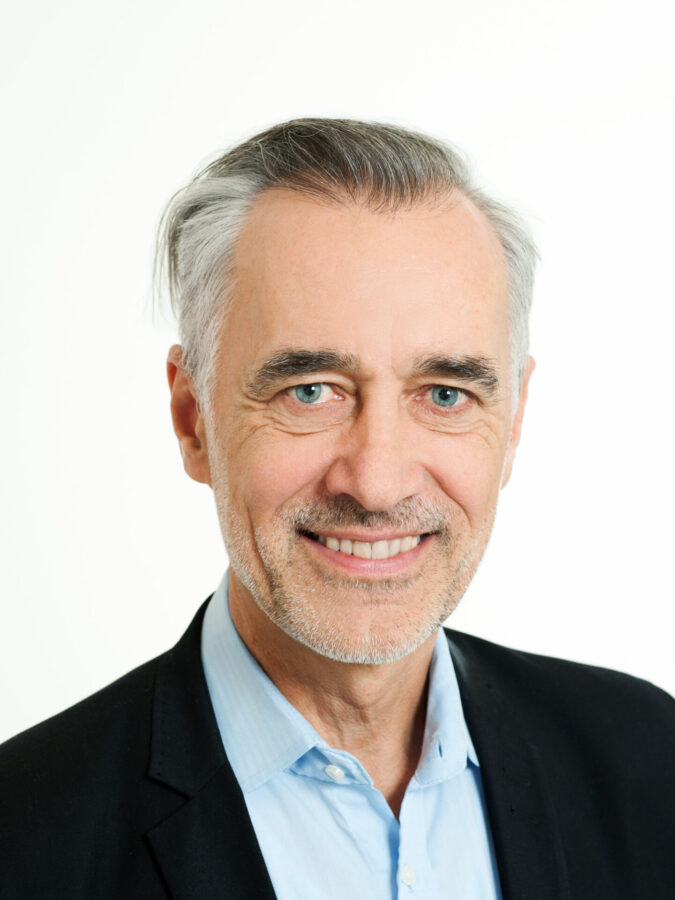
Univ.-Prof. Dr. Dirk Lange is a university professor for didactics of civic education at the University of Vienna. He has headed the Demokratiezentrum Wien since 2018 and is director at the Institute for Didactics of Democracy at the University Hannover. For many years, Dirk Lange was federal chairman of the German Association for Civic Education (DVPB) and director of the Agency for Adult and Continuing Education in Lower Saxony. He has varied international experiences, among others as an Honorary Professor at the University of Sydney (Australia) and as a Visiting Professor at the University of Zurich (Switzerland). His central research object is civic consciousness. His current work focuses on inclusive citizenship education, digitalization and civic education as well as global citizenship education.
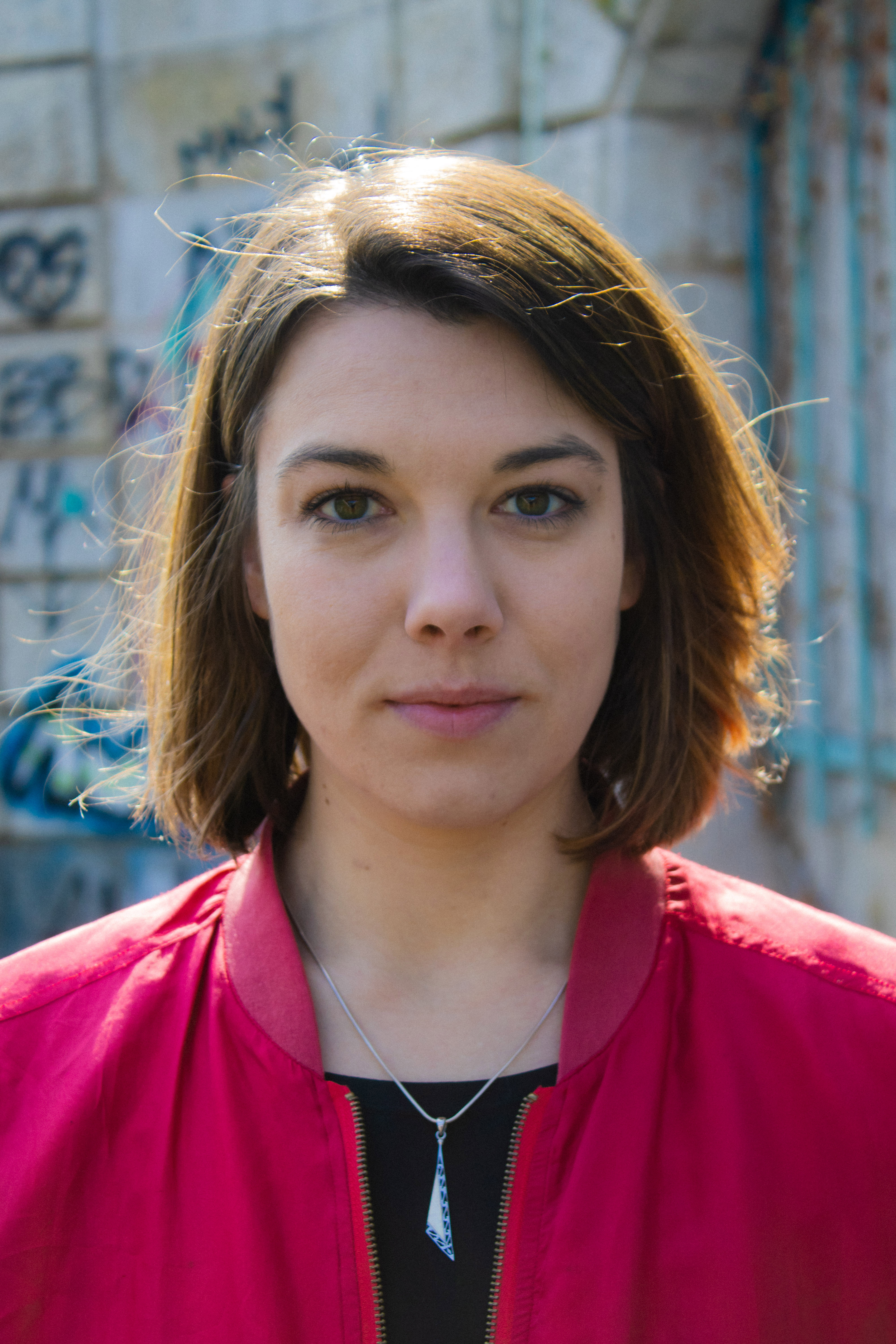
Stefanie Fridrik, BA BA MA is a research associate and project manager at the Demokratiezentrum Wien (Democracy Center Vienna). She conducts research at the intersection of political, cultural and transformative education, cultural policy, and critical art education. She studied art history and comparative literature at the University of Innsbruck and the University of Vienna and has also worked as an art educator in the museum and independent sector since 2018. Between 2020 and 2022 she worked as a research assistant (Prae Doc) in the research project AGONART at the Institute of Political Science at the University of Vienna. Since 2022 she is doing her PhD at the Institute for Art Education at the HFBK Hamburg and works as a research assistant at the Democracy Center Vienna. Her tasks include the conception, coordination and implementation of workshops and seminars for different target groups and the supervision of projects of democratic political education for adults in the e-learning field.
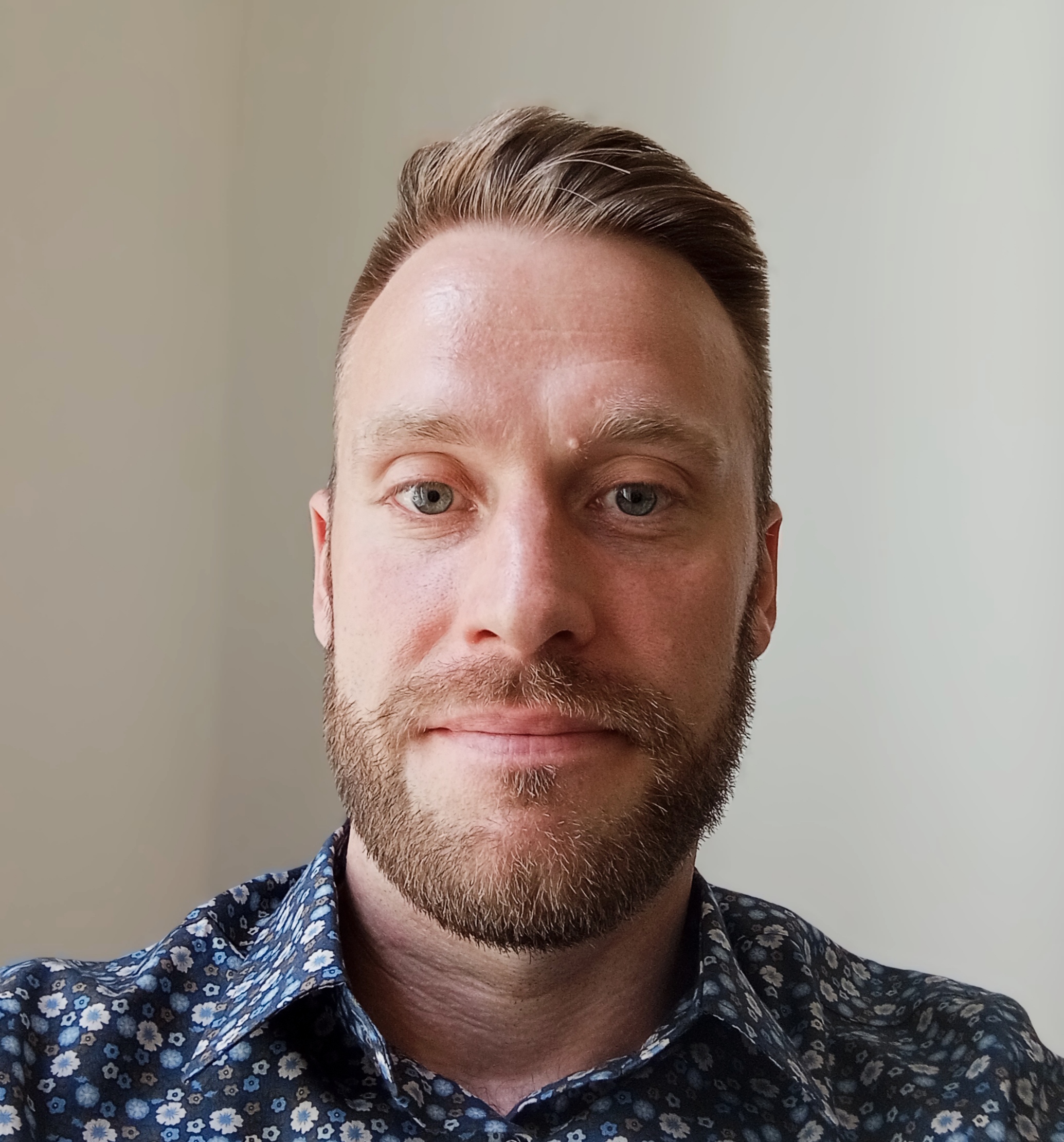
Josef Mühlbauer, BA MA is a research associate at the Demokratiezentrum Wien (Democracy Center Vienna). He studied political science and philosophy at the University of Vienna. His tasks at the Demokratiezentrum Wien include in particular interdisciplinary research and advanced training in the field of the Conflict – Peace – Democracy Cluster (CPDC). He is also involved in e-learning projects in the field of democratic political education for adults. He published the book "Zur imperialen Lebensweise" in 2022 and the book "Kritische Friedensforschung" in 2023.
Login & Enrol Currently: 265 Participants
Free for all € 0.00
Partners
A MOOC developed and created by
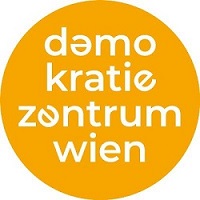
The Demokratiezentrum Wien (Democracy Center Vienna) is an independent scientific institution with tasks in democracy researchand democracy education. Our empirical and theoretical research serves the scientific knowledge, the democratic political discourse and the transfer into educational offers. In the sense of a subject-oriented and emancipative civic education, our guiding idea in our educational offers is the promotion of citizens’ maturity and their ability to participate politically.
Content-related assistence: Anja Fellner, BA
On behalf of
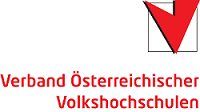
The Association of Austrian Adult EducationCenters is the umbrella organization of all 256 Austrian adult education
centers and one of ten associations in the Conference of Adult Education
Austria, the working platform of non-profit adult education. In their more than
one hundred years of history, the adult education centers have developed and
implemented important and innovative offers for political and contemporary
education. Democracy education is an important concern, and the Conference of
Austrian Adult Education is vehemently committed to its implementation in
Austrian adult education. The Democracy MOOC is made available to all actors in
adult education, further education and training.
Funded by the Federal Ministery of Education, Science and Research.

